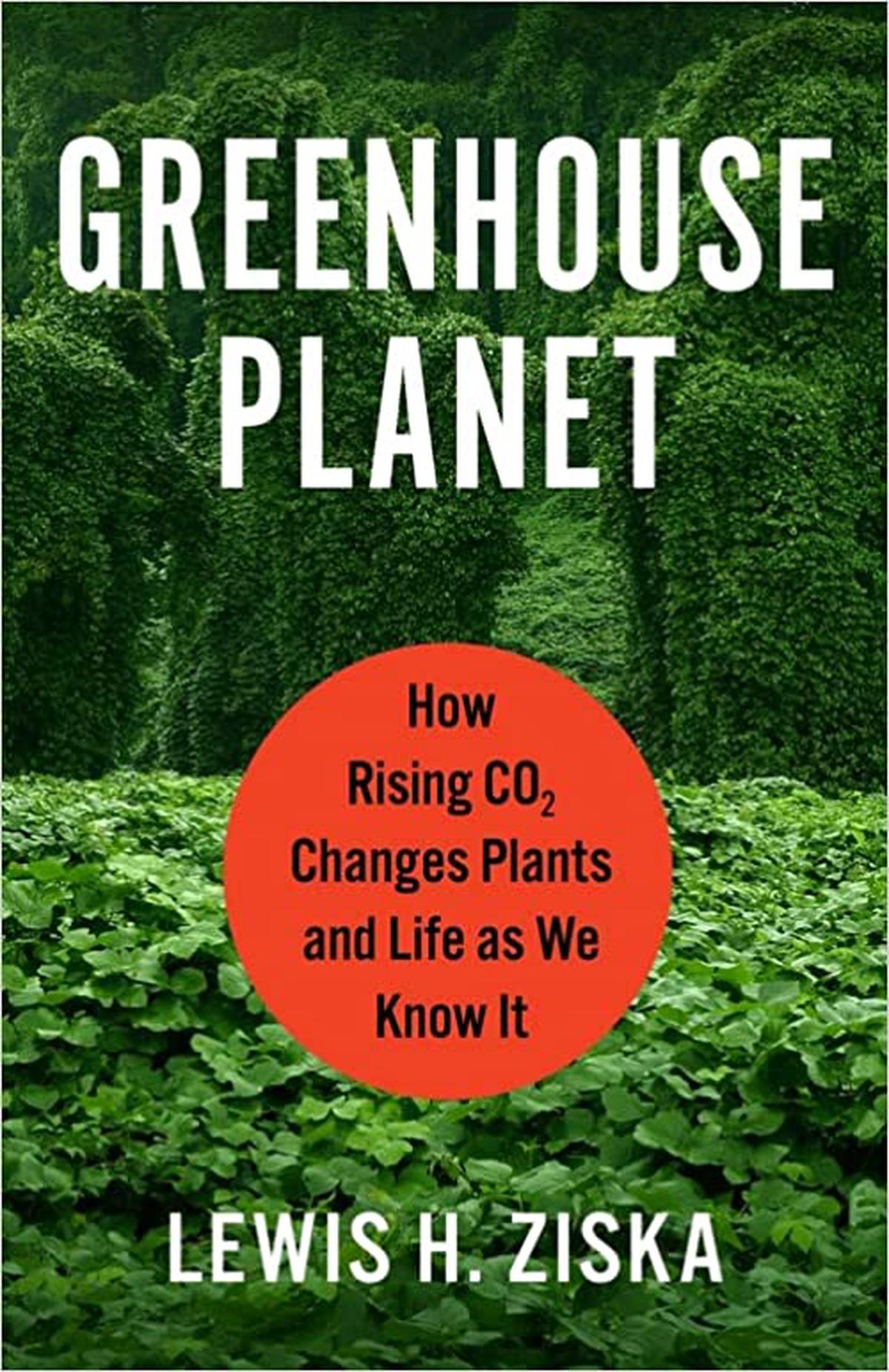‘Communicating science isn’t concerning the esoteric or the what may be. It is about linking the science, particularly meals science, to local weather and CO2 will increase,’ says professor Lewis H. Ziska.
| Photo Credit: particular association

Lewis H. Ziska, affiliate professor at Columbia University’s Mailman School of Public Health, needed to give up the U.S. Department of Agriculture after 25 years of service in 2019 to protest interference by the Trump administration in his analysis on the unfavorable results of rising carbon dioxide on dietary composition of rice. Published in Science Advances, a top-notch scientific journal, the analysis discovered that elevated carbon dioxide within the environment lowered Vitamin B and E in rice plant which might influence 50% of every day calorie consumption by greater than 6 million rice eaters on the earth. In his e-book Greenhouse Planet, he captures all that went behind the analysis whereas stressing the pressing want for investigating the climate-denying mantra that carbon dioxide feeds crops and greens the planet. In an e-mail interview, Prof. Ziska responded to questions on the broader implications of his analysis on plant biology as seen from the local weather change lens.
Will shifting focus from sea stage rise to plant biology, as you’ve gotten advised, not compromise the present commitments on emission discount to some extent as it would assist the local weather change deniers’ declare that ‘CO2 is plant food’?
I’m hoping it would strengthen these commitments — exhibiting that CO2 is plant meals for poison ivy, or for Parthenium — or can cut back the dietary content material of rice will, if something, deliver scientific scrutiny to the idea that ‘CO2 is plant food’, and problem deniers’ claims.
COP27 advocated progress on the difficulty of loss and injury attributable to excessive occasions, counting emission discount targets as an ongoing work. While the function of plant biology is undoubtedly important, will it get the specified consideration?
Fair level — it won’t get the eye it deserves sadly. It’s onerous to compete with excessive occasions, droughts, floods as they’re visually compelling. Watching gradual adjustments in plant species distribution, or dietary adjustments in your rice bowl, whereas crucial, don’t seize that stage of dramatic immediacy.
You argue that as CO2 stimulates progress and yield, it diminishes dietary high quality. Climate deniers would possibly learn the primary half of the assertion and rejoice on the prospect of getting extra crops.
It’s necessary to contemplate that within the plant kingdom, as with the animal kingdom, competitors is necessary. If you farm you recognise that the largest bodily effort is to scale back weeds, as weeds are the first limitation on crop yield. As CO2, the supply of carbon for plant progress will increase, it isn’t just crops which might be affected. In a majority of research up to now, it’s the weeds, not the crops, which might be the ‘winners’ and crop yields are negatively affected. So, whereas particular person crops can reply, in a discipline state of affairs, the weeds, with their better potential to adapt to vary, might pose a fair better menace to meals safety.
By your individual admission, latest and projected CO2 will increase within the environment can stimulate the expansion of some fundamental cereals (viz., wheat, rice, soybeans) in addition to many weeds. Isn’t it an fascinating tradeoff for sequestering extra carbon from the environment?
Yes. One piece of excellent information, lots of the worst weeds are merely wild relations of the crop. For instance in rice, the worst weed is Red Rice, or weedy rice. Right now now we have knowledge suggesting that weedy rice has already responded strongly to the 25% enhance in CO2 since 1970, i.e. it yields greater than the cultivated rice strains which reply roughly by about 10%. Suppose we knew why — might we search for these traits in weedy strains as a method to extend yields (and sequester carbon) in cultivated rice by means of breeding? Can crops ‘learn’ from their weedy cousins?
Climate change has been made to look like a black-and-white subject whereas in actuality it’s advanced. How greatest to speak science particularly when it’s about crops that impacts a whole lot of thousands and thousands of individuals?
Great query — and a tough one. Communicating science isn’t concerning the esoteric or the what may be. It is about linking the science, particularly meals science, to local weather and CO2 will increase. These hyperlinks embody manufacturing (in fact) but additionally vitamin (CO2 results) and meals security (temperature results on pathogens). My expertise has been that should you can relate these scientific points on to what you eat on the desk; then local weather/CO2 takes on a really actual and quick which means.
How to ‘vote for science’ when the just about ‘certain’ science behind local weather change has grow to be ‘uncertain’, with the trouble to discredit science has grow to be extra intense? How to take care of it within the post-truth period?
Respectfully disagree, maybe there may be better effort to push again and discredit local weather science, however local weather change has, if something, grow to be extra sure. It is the science of CO2 and plant biology that wants better clarification and exploration past the straightforward ‘CO2 is plant food’ meme. But the scientific backside line is easy: If you assume that the science of local weather change (or CO2 results on plant biology) is fallacious — proof it. Write an speculation, check it, inform us the way you examined it (so we are able to see what you probably did), and publish the findings after different consultants have checked out your work. Lots of bloggers will speak about how local weather science is fallacious — however up to now I’m unaware of any who’ve revealed within the peer evaluate literature exhibiting that anthropogenic local weather change shouldn’t be occurring.
Greenhouse Planet; Lewis H. Ziska, Columbia University Press, ₹2,130.
The unbiased author is a researcher and educational.


